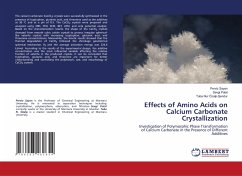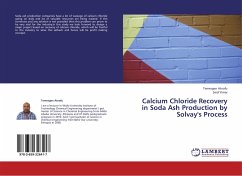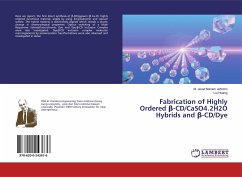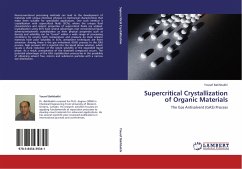The calcium carbonate (CaCO3) crystals were successfully synthesized in the presence of tryptophan, glutamic acid, and threonine used as the additives at 30 °C and at a pH of 8.5. The CaCO3 crystals were prepared and analyzed using XRD, FTIR, SEM, BET, AFM, and zeta potential analysis. Based on the characterization results, the shape of the CaCO3 crystals changed from smooth cubic calcite crystals to porous irregular spherical-like vaterite crystals with increasing tryptophan, glutamic acid, and threonine concentrations. Meanwhile, the kinetic results showed that the thermal degradation of CaCO3 followed the shrinkage geometrical spherical mechanism, R3 and the average activation energy was 224.6 kJ/mol. According to the results of the experimental design, the additive concentration was the most influential variable affecting the relative fraction of vaterite in the produced crystals. It can be concluded that tryptophan, glutamic acid, and threonine are important for better understanding and controlling the polymorph, size, and morphology of CaCO3 crystals.
Bitte wählen Sie Ihr Anliegen aus.
Rechnungen
Retourenschein anfordern
Bestellstatus
Storno








